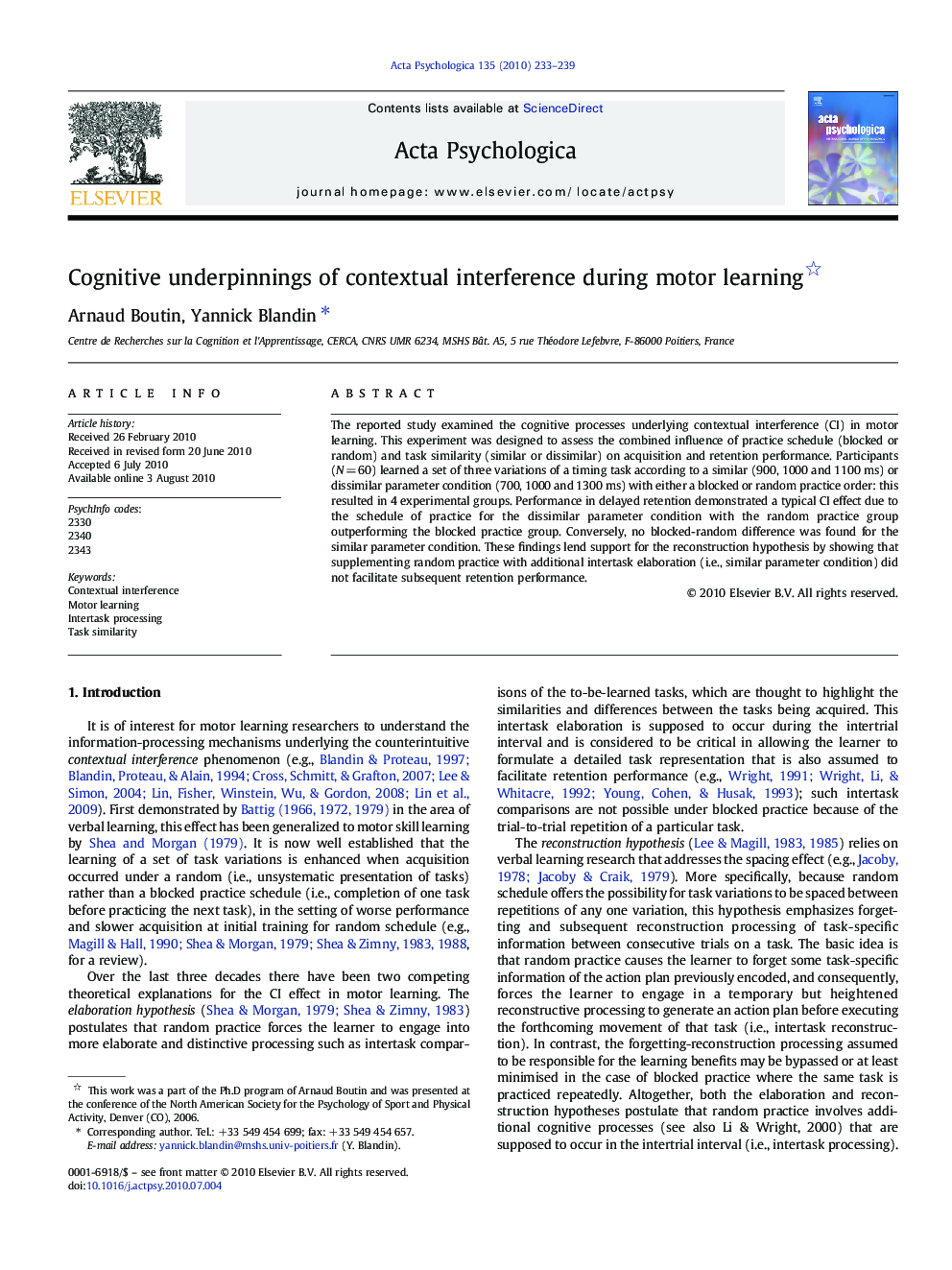| Article ID | Journal | Published Year | Pages | File Type |
|---|---|---|---|---|
| 920261 | Acta Psychologica | 2010 | 7 Pages |
The reported study examined the cognitive processes underlying contextual interference (CI) in motor learning. This experiment was designed to assess the combined influence of practice schedule (blocked or random) and task similarity (similar or dissimilar) on acquisition and retention performance. Participants (N = 60) learned a set of three variations of a timing task according to a similar (900, 1000 and 1100 ms) or dissimilar parameter condition (700, 1000 and 1300 ms) with either a blocked or random practice order: this resulted in 4 experimental groups. Performance in delayed retention demonstrated a typical CI effect due to the schedule of practice for the dissimilar parameter condition with the random practice group outperforming the blocked practice group. Conversely, no blocked-random difference was found for the similar parameter condition. These findings lend support for the reconstruction hypothesis by showing that supplementing random practice with additional intertask elaboration (i.e., similar parameter condition) did not facilitate subsequent retention performance.
